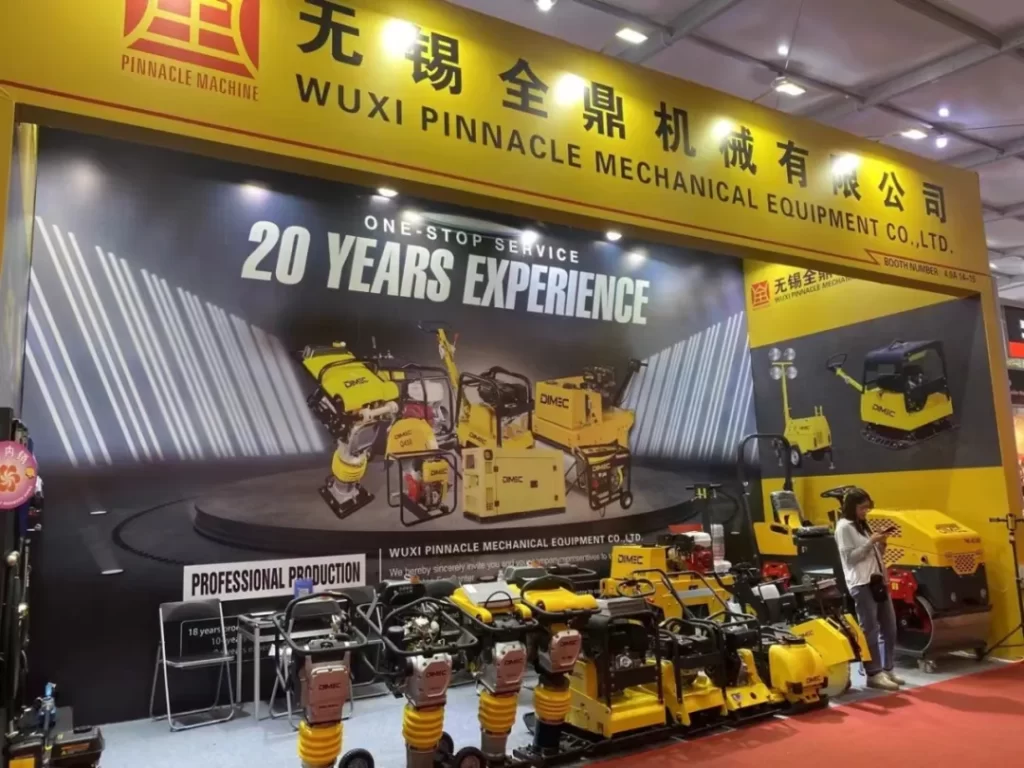Why Should You Use a Vibrator Soil Compactor? The Ultimate Guide with 7 Key Benefits
- DIMEC
- Vibrator Soil Compactor
- 06/03/2025
Home » Why Should You Use a Vibrator Soil Compactor? The Ultimate Guide with 7 Key Benefits

Table of Contents
Introduction
Soil compaction is a critical process in construction, ensuring ground stability and structural longevity. A vibrator soil compactor plays a key role in this process, making it an indispensable tool for contractors and engineers. But why should you use one? This article dives into the essential benefits, applications, and best practices for using a vibrator soil compactor.
What is a Vibrator Soil Compactor?
A vibrator soil compactor is a machine used to compress soil, reducing air gaps and increasing density. It operates using vibrations that help particles settle tightly together, improving soil strength and stability.
 Components of a Vibrator Soil Compactor
Components of a Vibrator Soil Compactor
Vibrating Plate or Drum – The primary mechanism for compaction
Engine or Motor – Powers the machine
Handle or Steering Mechanism – Used for maneuvering
Vibration Mechanism – Generates consistent vibrations
 How It Works
How It Works
The machine’s vibrating motion forces soil particles to realign, eliminating air pockets. This results in a denser, more stable foundation suitable for construction projects.
Types of Vibrator Soil Compactors
There are several types of vibrator soil compactors, each suited for different applications:
Plate Compactors – Ideal for granular soils in small to medium areas.
Jumping Jack Compactors – Best for cohesive soils like clay.
Road Rollers – Used for large-scale projects like road construction.
Key Benefits of Using a Vibrator Soil Compactor
 1. Increased Soil Stability
1. Increased Soil Stability
Vibration helps compact soil evenly, preventing shifting and improving ground stability.
 2. Prevention of Soil Settlement
2. Prevention of Soil Settlement
Compacted soil reduces post-construction settling, minimizing cracks and structural damage.
 3. Enhanced Load-Bearing Capacity
3. Enhanced Load-Bearing Capacity
Proper compaction increases the soil’s ability to support heavy loads without shifting.
 4. Reduced Water Seepage
4. Reduced Water Seepage
Tightly packed soil minimizes water penetration, reducing erosion risks.
 5. Efficient Work Process
5. Efficient Work Process
Using a vibrator compactor speeds up construction projects, reducing labor costs.
 6. Cost Savings
6. Cost Savings
Prevents costly repairs caused by soil displacement and structural failure.
 7. Versatility in Applications
7. Versatility in Applications
From driveways to highways, a vibrator soil compactor can be used in various construction settings.
How to Choose the Right Vibrator Soil Compactor
 Factors to Consider
Factors to Consider
Soil Type – Different compactors work best with specific soil types.
Project Size – Small, medium, or large-scale applications.
Power Source – Gasoline, diesel, or electric-powered models.
Weight & Vibration Frequency – Determines compaction effectiveness.
FAQs

Granular soils, such as sand and gravel, are ideal for vibration-based compaction.

Yes, but it may require additional passes or a combination of other compaction methods.

Regular maintenance, including lubrication and part inspections, should be done after every project.

Yes, when operated with proper safety precautions, including protective gear and correct handling.

Absolutely! Many equipment rental companies offer compactors for short-term use.

It depends on the model, but most compact up to 6-12 inches per pass.
Conclusion
A vibrator soil compactor is a must-have for any construction project requiring soil stabilization. It offers multiple benefits, including increased stability, cost savings, and efficiency. By choosing the right model and following best practices, you can ensure high-quality results for your projects.
You May Also Like
 1. Increased Soil Stability
1. Increased Soil Stability Factors to Consider
Factors to Consider